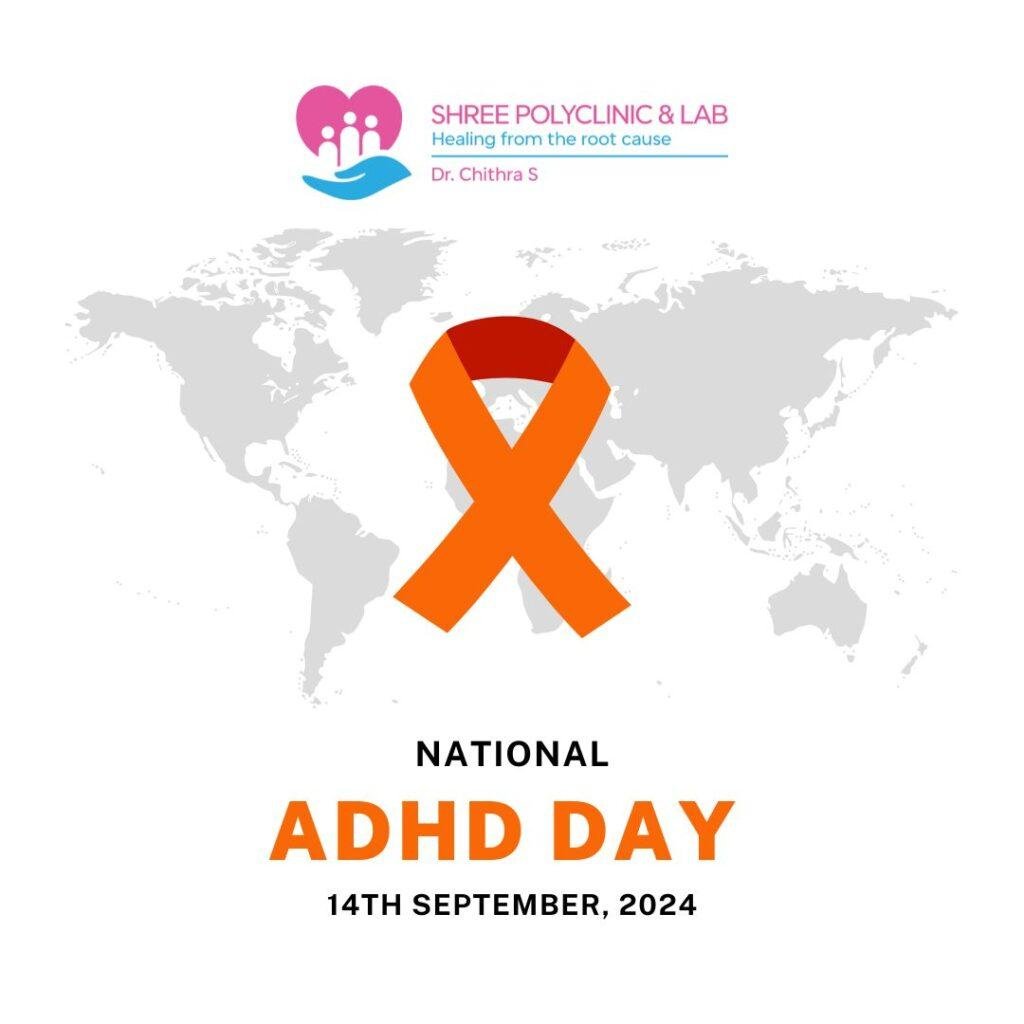Every year on 14th September, we observe National ADHD Day to spread awareness about Attention Deficit Hyperactivity Disorder (ADHD), a condition affecting millions globally. This day emphasizes the importance of understanding, diagnosis, and support, especially for children who may struggle with this condition.
What is ADHD?
ADHD is a condition that affects an individual’s ability to focus, control impulses, and regulate energy levels. While it’s commonly associated with children, adults can also experience symptoms. The day is meant to spotlight the ADHD symptoms in children and adults, encouraging better awareness and treatment options.
ADHD Symptoms in Children
Recognizing ADHD symptoms in children can be challenging because many behaviors may seem typical for young children. However, when these behaviors are excessive, age-inappropriate, and impact daily functioning, they might point to ADHD. Here are common symptoms to look out for:
- Inattention: Difficulty focusing, easily distracted, and struggles with following instructions.
- Hyperactivity: Constant fidgeting, running or climbing in inappropriate situations, and excessive talking.
- Impulsivity: Interrupting others, impatience, and difficulty waiting their turn.
Early identification is essential for effective ADHD treatment, allowing children to reach their full potential both in school and socially.
ADHD Diagnosis
Diagnosing ADHD involves a comprehensive evaluation, including input from parents, teachers, and healthcare providers. It’s important to note that ADHD is not just a behavioral issue but a neurological condition that requires careful ADHD diagnosis. Misdiagnosis or delayed diagnosis can lead to problems in education, relationships, and self-esteem.
ADHD Treatment Options
There is no one-size-fits-all approach when it comes to ADHD treatment. Treatment typically includes:
- Behavioral Therapy: Helping individuals develop coping strategies.
- Medications: Stimulants and non-stimulants are often prescribed to manage symptoms.
- Support Systems: Schools and parents can implement routines and structure to aid in managing symptoms effectively.
Understanding that ADHD is manageable with the right support is critical for the well-being of those affected.
ADHD Support
Families and individuals dealing with ADHD need comprehensive support systems to navigate everyday challenges. ADHD support groups, educational resources, and counseling can provide much-needed assistance. Engaging with organizations that promote ADHD awareness can also help those living with ADHD feel understood and supported.
Why National ADHD Day is Important
National ADHD Day 2024 serves as a reminder that early diagnosis and intervention can change the course of a person’s life. It’s a day dedicated to breaking stigmas, improving public understanding, and ensuring that those with ADHD receive the help they need. By raising awareness, we can foster an environment of inclusivity and support for everyone affected.
ADHD Facts:
- ADHD affects approximately 5-7% of children worldwide.
- Boys are more likely to be diagnosed with ADHD than girls, although it is often underdiagnosed in females.
- ADHD can persist into adulthood, with many individuals continuing to experience symptoms.
- Proper ADHD diagnosis and treatment significantly improve life outcomes.
Conclusion
As we observe National ADHD Day on 14th September, let’s commit to increasing ADHD awareness, advocating for better diagnostic and treatment services, and supporting individuals and families affected by the condition. Together, we can create a more understanding and supportive world for those living with ADHD.

